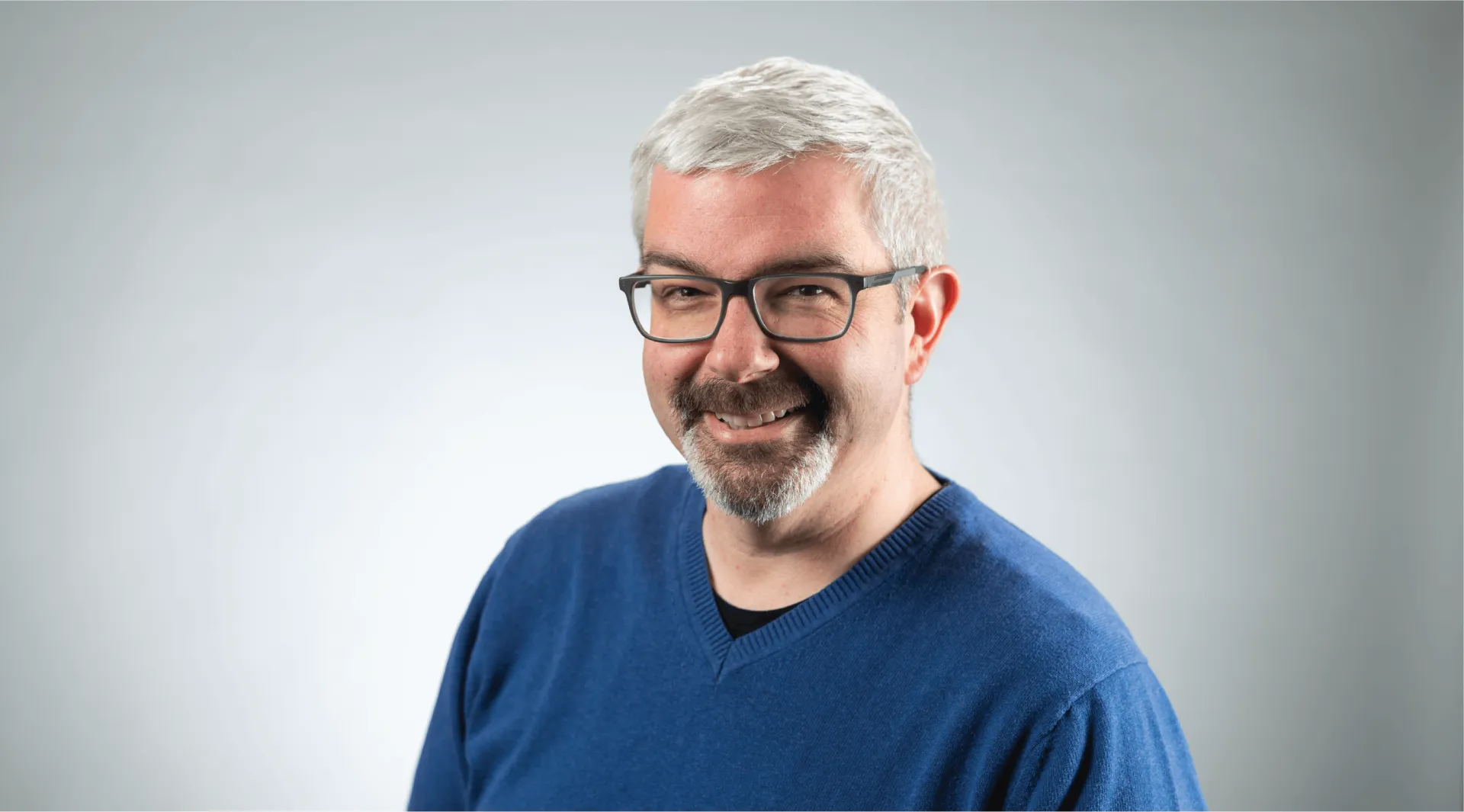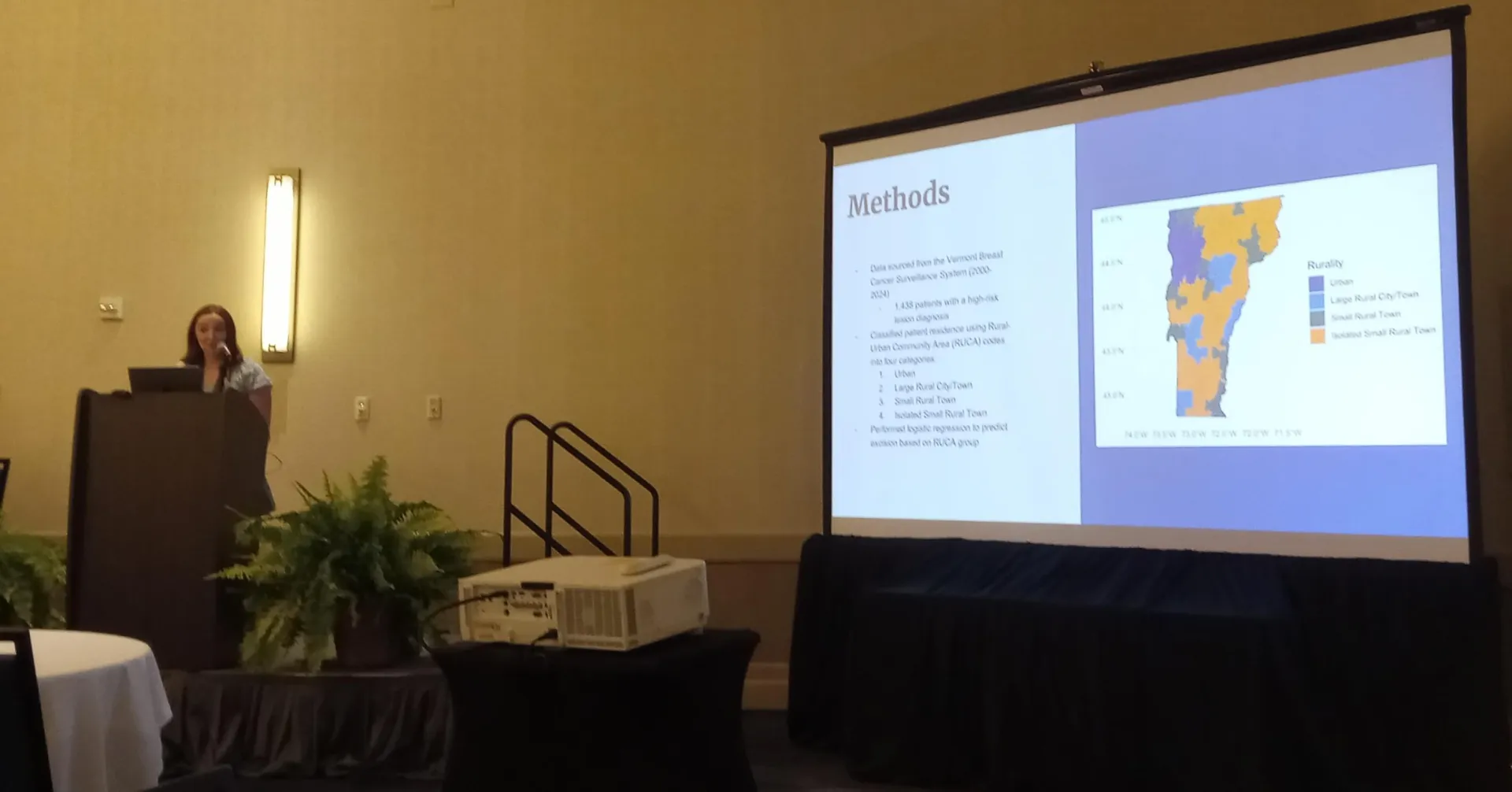In honor of Breast Cancer Awareness Month, we are excited to introduce you to one of the University of Vermont Cancer Center’s outstanding breast cancer scientists, Tom Ahern, PhD, MPH. Read on to learn more about Dr. Ahern’s research and the impact it could have on our communities.
Tell us about your research. What is the biggest takeaway?
Most of my work focuses on understanding mechanisms of breast cancer incidence and recurrence, dealing mostly with pharmaceutical and molecular determinants of those outcomes. For example, my group has evaluated the association between ingestion of phthalates in medications and the risk of developing ER-positive breast cancer, and we have examined genetic variation in drug-metabolizing enzymes in relation to failure of tamoxifen therapy. Currently, we have an R01 project to develop the first breast tumor gene expression model for estimating risk of late-recurring breast cancer.
Why breast cancer research?
After college, I spent a couple of years working in Dr. David Krag’s lab. There, I gained a great deal of exposure to fundamental breast cancer research. Later, when I decided to pursue a graduate degree in epidemiology, my past experiences made me a good fit for a thesis advisor at Boston University whose work was on the molecular epidemiology of breast cancer survival. While my choice to pursue breast cancer research was largely driven by the generous opportunities I received from my mentors, my daily motivation comes from appreciating the impact breast cancer has worldwide, and seeing how effective research has been at improving survival during my lifetime. There is more work to do, and I am grateful to participate in that effort.
How does your work directly impact the UVMCC catchment area?
Breast cancer is the most common cancer in women worldwide, including in the UVMCC catchment area. While much of my research takes place in Denmark, it is designed to make broad inferences that impact all breast cancer patients, including those in the UVMCC catchment area.
Is there a finding from your research you are particularly proud of?
A few years ago, I worked with a large international collaborative group to carry out a Danish cohort study to exploring the prominent theory that functional polymorphisms in tamoxifen-metabolizing enzymes modify the effectiveness of breast cancer treatment. We developed and applied a novel Bayesian pathway analysis method specifically for this hypothesis, carried out comprehensive genotyping in a cohort of over 5,000 patients, and found weak evidence that variation in phase I enzymes plays a role in tamoxifen response. We concluded that, while there may be a small biological effect, it likely does not mean that patients should be tested for these germline variants when deciding whether to start tamoxifen (citation below).
On the methodologic side, I’m very proud of a technique we developed for simulating the impact of different multivariable modeling choices (specifically, which set of confounders a regression model is adjusted for) when summarizing results across an evidence base in a meta-analysis (citation below).
Do you work with trainees? If, so, what do they add to your research?
I have worked with trainees (locally and internationally) across the career continuum, from undergraduates to graduate/medical students to clinical fellows. Having trainees is my greatest motivation for staying current in my ever-changing field. Their curiosity about new methods and techniques drives me to adapt them in my own work, which invariably requires me to devote time to learning about them. I’m not sure I would have the impetus to do that otherwise. So, trainees help keep my research on the cutting edge, using the most rigorous approaches and analytic methods. My trainees with clinical roles also bring that perspective to my work, which is invaluable when designing studies or making analytic choices.
What is an interesting fact about you or something you’d want people to know?
My passion outside of work is underwater photography.
Dr. Ahern’s work has been supported by the following grants:
- R01CA286069 (PI) “Using gene expression to identify patients at high risk for late breast cancer recurrence.”
- R01285051 (Co-I) “Improving measurement of cancer registry completeness.”
You can learn more about his research projects by reading the below publications:
- Ahern TP, Collin LJ, Baurley JW, et al. Metabolic Pathway Analysis and Effectiveness of Tamoxifen in Danish Breast Cancer Patients. Cancer Epidemiol Biomarkers Prev. 2020;29(3):582-590.
- Ahern TP, Collin LJ, MacLehose RF, et al. Adjusting adjustments: Using external data to estimate the impact of different confounder sets on published associations. Epidemiology. 2025;36(2):237-44.

